
Ellas Otha Bates, known professionally as Bo Diddley, was an American guitarist and singer who played a key role in the transition from the blues to rock and roll. He influenced many artists, including Buddy Holly, Elvis Presley, the Beatles, the Rolling Stones, the Animals, George Thorogood, Syd Barrett, and the Clash.

William James Dixon was an American blues musician, vocalist, songwriter, arranger and record producer. He was proficient in playing both the upright bass and the guitar, and sang with a distinctive voice, but he is perhaps best known as one of the most prolific songwriters of his time. Next to Muddy Waters, Dixon is recognized as the most influential person in shaping the post–World War II sound of the Chicago blues.
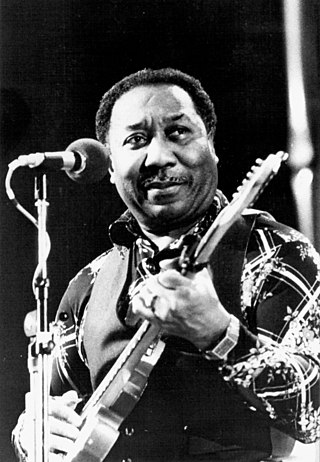
McKinley Morganfield, known professionally as Muddy Waters, was an American blues singer and musician who was an important figure in the post-World War II blues scene, and is often cited as the "father of modern Chicago blues". His style of playing has been described as "raining down Delta beatitude".
Leonard Samuel Chess, best known simply as Leonard Chess, was a Polish-American record company executive and the co-founder of Chess Records. He was influential in the development of electric blues, Chicago blues, and rock and roll.
Chicago blues is a form of blues music that developed in Chicago, Illinois. It is based on earlier blues idioms, such as Delta blues, but is performed in an urban style. It developed alongside the Great Migration of African Americans of the first half of the twentieth century. Key features that distinguish Chicago blues from the earlier traditions, such as Delta blues, is the prominent use of electrified instruments, especially the electric guitar, and especially the use of electronic effects such as distortion and overdrive.
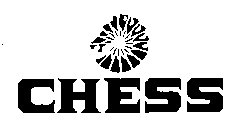
Chess Records was an American record company established in 1950 in Chicago, specializing in blues and rhythm and blues. It was the successor to Aristocrat Records, founded in 1947. It expanded into soul music, gospel music, early rock and roll, and jazz and comedy recordings, released on the Chess and its subsidiary labels Checker and Argo/Cadet. The Chess catalogue is owned by Universal Music Group and managed by Geffen Records and Universal Music Enterprises.
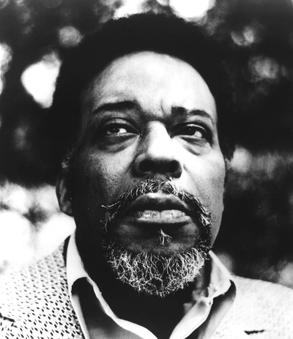
Eugene "Jug" Ammons, also known as "The Boss", was an American jazz tenor saxophonist. The son of boogie-woogie pianist Albert Ammons, Gene Ammons is remembered for his accessible music, steeped in soul and R&B.
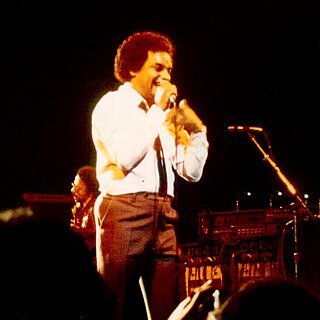
Gary U.S. Bonds is an American rhythm and blues and rock and roll singer, known for his hits "New Orleans" and "Quarter to Three".

"Mannish Boy" is a blues standard written by Muddy Waters, Mel London, and Bo Diddley. First recorded in 1955 by Waters, it serves as an "answer song" to Bo Diddley's "I'm a Man", which was in turn inspired by Waters' and Willie Dixon's "Hoochie Coochie Man". "Mannish Boy" features a repeating stop-time figure on one chord throughout the song.
Francesco J. "Frank" Guida was a Sicilian-American songwriter and music producer credited with discovering Gary U.S. Bonds, whose hits, including "New Orleans" and "Quarter to Three", he produced. He was also a songwriter for Leroy Toombs. Other performers discovered by Guida include Jimmy Soul, Tommy Facenda, Lenis Guess and Pamala Stanley. The distinct sound he helped to create has been credited as influencing such major songwriters and producers as Bruce Springsteen and Phil Spector. Together with musicians like the tenor saxman Gene "Daddy G" Barge, he helped establish what became known as "The Norfolk Sound". His songs have been used in such films as Mask, Mermaids and Jaded.
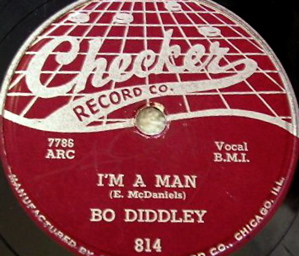
"I'm a Man" is a rhythm and blues song written and recorded by Bo Diddley in 1955. Inspired by an earlier blues song, it was one of his first hits. "I'm a Man" has been recorded by a variety of artists, including the Yardbirds, who adapted it in an upbeat rock style.

"Who Do You Love?" is a song written by American rock and roll pioneer Bo Diddley. Recorded in 1956, it is one of his most popular and enduring works. The song represents one of Bo Diddley's strongest lyrical efforts and uses a combination of hoodoo-type imagery and boasting. It is an upbeat rocker, but the original did not use the signature Bo Diddley beat rhythm.
"Road Runner" is a 12-bar blues song performed by American rock and roll performer Bo Diddley, originally released as a single by Checker Records in January 1960, and later released on the LP record Bo Diddley in the Spotlight. The song reached #20 on Billboard magazine's Hot R&B Sides chart, and #75 on the Hot 100. The song has since been recorded by many artists.
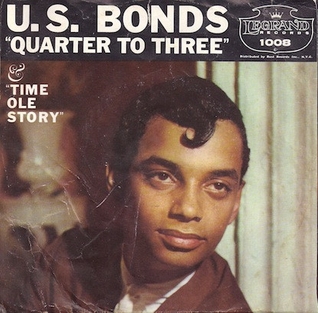
"Quarter to Three" is a popular song, adapted and expanded from "A Night with Daddy 'G' – Part 1", an instrumental by the Church Street Five, which was written by Gene Barge, Frank Guida and Joseph Royster, and sung by Gary U.S. Bonds. "Quarter to Three" appears on The Rock and Roll Hall of Fame's 500 Songs that Shaped Rock and Roll list.
Joseph Leon "Jody" Williams was an American blues guitarist and singer. His singular guitar playing, marked by flamboyant string-bending, imaginative chord voicings and a distinctive tone, was influential in the Chicago blues scene of the 1950s.
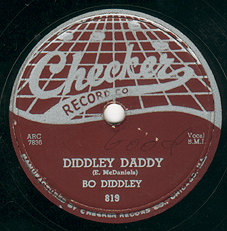
"Diddley Daddy" is a song by Bo Diddley. The song was issued as a single on Checker Records in June 1955. His second single, it followed on the heels of the success of the eponymous "Bo Diddley." The song spent four weeks on the Billboard R&B chart in the summer of 1955, peaking at No. 11.

"You Don't Love Me" is a rhythm and blues-influenced blues song recorded by American musician Willie Cobbs in 1960. Adapted from Bo Diddley's 1955 song "She's Fine She's Mine", it is Cobbs' best-known song and features a guitar figure and melody that has appealed to musicians in several genres.
Big Twist and the Mellow Fellows was an American blues and rhythm and blues group.
Clifton James was an American drummer who was most closely associated with Bo Diddley, and played on many R&B records issued by Chess Records between 1955 and 1970.
Jerome Green was an American percussionist and occasional lyricist and vocalist, known for playing maracas and acting as Bo Diddley's foil in his performances and on his recordings in the 1950s and early 1960s.











